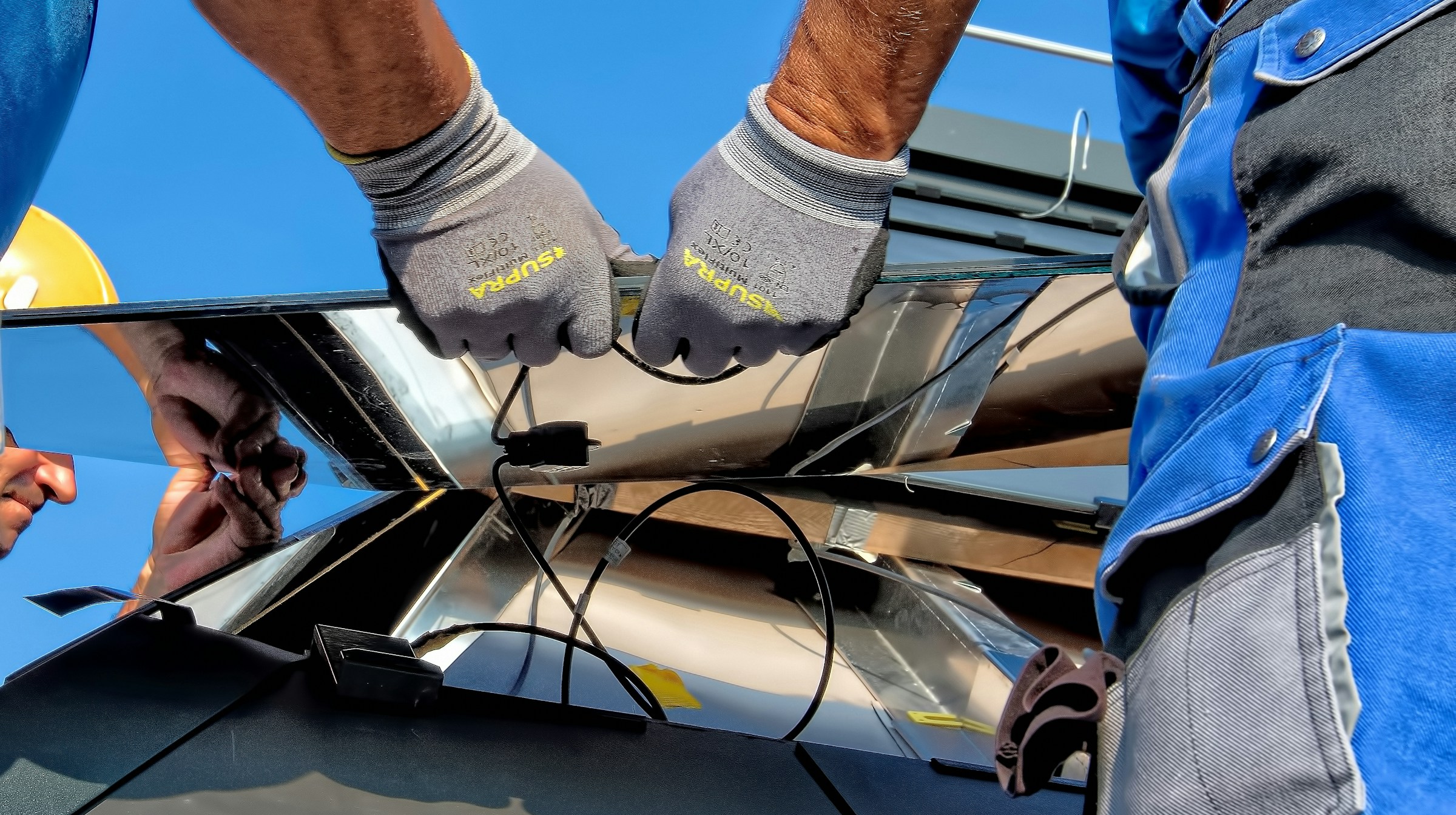Renewable energy installations have been a hot topic in the UK for several years. You may have noticed a growing number of homes equipped with solar panels, or perhaps you have read about the government’s push for more efficient heating systems in an attempt to reduce carbon emissions. However, deciphering the ins and outs of renewable energy can be a daunting task. This article will break down the crucial components of renewable energy installations, focusing on best practices for UK homes.
Harnessing Solar Energy
The sun, a natural, powerful source of energy, is the core of solar systems. The benefits of solar energy are extensive, from cost savings to environmental impact. However, understanding how to optimally utilize this resource is key.
Dans le meme genre : How to Approach Property Investment in UK University Towns for Maximum ROI?
Capturing solar energy involves the use of solar panels, which convert sunlight into electricity. The panels must be located where they will receive the maximum amount of sunlight throughout the day and across the seasons. In the UK, this means positioning the panels facing South at an angle of around 30-40 degrees.
It is also crucial to consider the maintenance and cleaning of the panels. Contrary to popular belief, solar panels are not entirely self-cleaning. Dirt, dust, and other residues can accumulate over time, reducing their efficiency and output. Therefore, it is recommended to clean the panels at least once a year.
Cela peut vous intéresser : Is Co-Living the Future of Affordable Urban Housing in the UK?
Energy Efficient Building Insulation
An efficient insulation system is a prerequisite for an energy-efficient home. It reduces the amount of heat that escapes from a building in the winter and keeps it cooler in the summer. Insulation thus plays a pivotal role in reducing the heating and cooling costs of a home.
The most common types of insulation include blanket insulation, loose-fill insulation, and sprayed foam insulation. Each of these has its own advantages and disadvantages, so it is crucial to select the right type of insulation for your specific needs and circumstances.
Additionally, it is essential to ensure that your home is properly insulated at all critical points. This includes the roof, walls, floors, and windows. It is wise to have an energy audit conducted to identify any areas of your home that may require additional insulation.
Heating Systems and Heat Pumps
Heating homes account for a significant portion of household energy consumption in the UK. Therefore, it’s important to consider the efficiency of your heating system.
Heat pumps are a renewable technology that extracts heat from the air or ground to heat your home. They are an increasingly popular choice due to their efficiency and cost-effectiveness. There are two primary types of heat pumps – air-source heat pumps and ground-source heat pumps.
Air-source heat pumps extract heat from the outside air and use it to heat your home and hot water. Ground-source heat pumps, on the other hand, use pipes buried in the garden to extract heat from the ground.
While the initial investment for these systems can be high, the potential savings on your energy bills make them a worthwhile consideration.
The Smart Grid System
A smart grid is an electric grid enhanced with innovative digital technology for better efficiency, reliability, and safety. It plays a critical role in managing the demand, distribution, and storage of electricity in an energy-efficient manner.
Smart grids allow for better integration of renewable energy sources like solar and wind. They also enable consumers to monitor their energy usage and control appliances at home remotely, encouraging energy-saving practices.
The UK government has set ambitious targets for the roll-out of smart grids, aiming to have a nationwide smart grid established within coming years. Homeowners can thus expect to play an interactive role in managing their energy usage.
The Role of Renewable Energy Systems in Reducing Costs
Renewable energy systems can contribute significantly to lowering energy costs. Solar panels, for instance, can reduce electricity bills by generating power that would otherwise need to be sourced from the grid. Similarly, efficient heating systems like heat pumps can decrease heating costs in the long run.
Many homeowners worry about the upfront costs associated with installing renewable energy systems. However, various government schemes offer incentives or grants for homeowners who invest in these technologies. This can take the form of feed-in tariffs for solar energy installations or the Renewable Heat Incentive for heat pumps.
Remember, it is not just about the immediate savings. Over time, these systems can save significant amounts of money, making them a sound investment for the future. They also enhance the value of your property, making it an attractive option for eco-conscious buyers.
Battery Storage and Energy Management
Battery storage has emerged as a game-changing technology in the renewable energy sector. Essentially, battery storage systems store excess energy produced by solar panels or wind turbines for later use. This boosts the overall efficiency and reliability of renewable energy installations by ensuring that the power generated does not go to waste during periods of low demand.
In the UK, battery storage systems are typically connected to the home’s electrical system. This allows homeowners to utilise the stored energy during peak times or when the renewable energy systems are not producing power, such as at night or on cloudy days.
Beyond providing a back-up power supply, battery storage systems can also be used to sell excess energy back to the grid. This is particularly beneficial in the UK, where certain energy suppliers offer tariffs that reward homes for exporting electricity back to the grid.
In terms of energy management, battery storage systems can be combined with smart technology to create an energy-efficient home. Smart energy management systems can automate the switching between grid power and battery power based on real-time energy prices, maximising savings for the homeowner.
However, it’s worth noting that the cost of installing a battery storage system can be quite high. Fortunately, the UK government provides grants and incentives to help offset these costs, making it a more affordable and sustainable option for homeowners.
Wind Energy
Wind energy is another viable form of renewable energy for UK homes, particularly for those located in windy areas. Small wind turbines can be installed on rooftops or in backyards to harness the power of the wind and convert it into electricity.
It’s important to understand that the effectiveness of wind turbines is highly dependent on the location and the wind speed. According to the Energy Saving Trust, a wind turbine is worth considering if you live in an area with an average annual wind speed of at least 5 metres per second.
Wind turbines can be used in conjunction with solar panels to create a hybrid system. This allows homes to generate electricity from both sources, improving the overall efficiency and reliability of the renewable energy system.
It should be noted that planning permission is often required to install wind turbines, especially for those exceeding a certain height. Therefore, homeowners should consult with their local authorities before proceeding with a wind turbine installation.
Conclusion
The adoption of renewable energy systems in UK homes is not only beneficial for the environment but also economically advantageous for homeowners. Harnessing solar energy, improving building insulation, implementing efficient heating systems, and capitalising on smart grid systems are all ways to reduce energy consumption and costs.
Integrating battery storage systems and wind energy installations further boosts the efficiency of renewable energy systems, enabling homes to become self-sufficient and resilient to power outages.
While the initial costs of these installations can be daunting, the long-term savings and potential income, combined with available government incentives, make renewable energy an excellent investment for UK homeowners. By adopting these best practices, we can play an active role in creating a sustainable, low carbon future.






